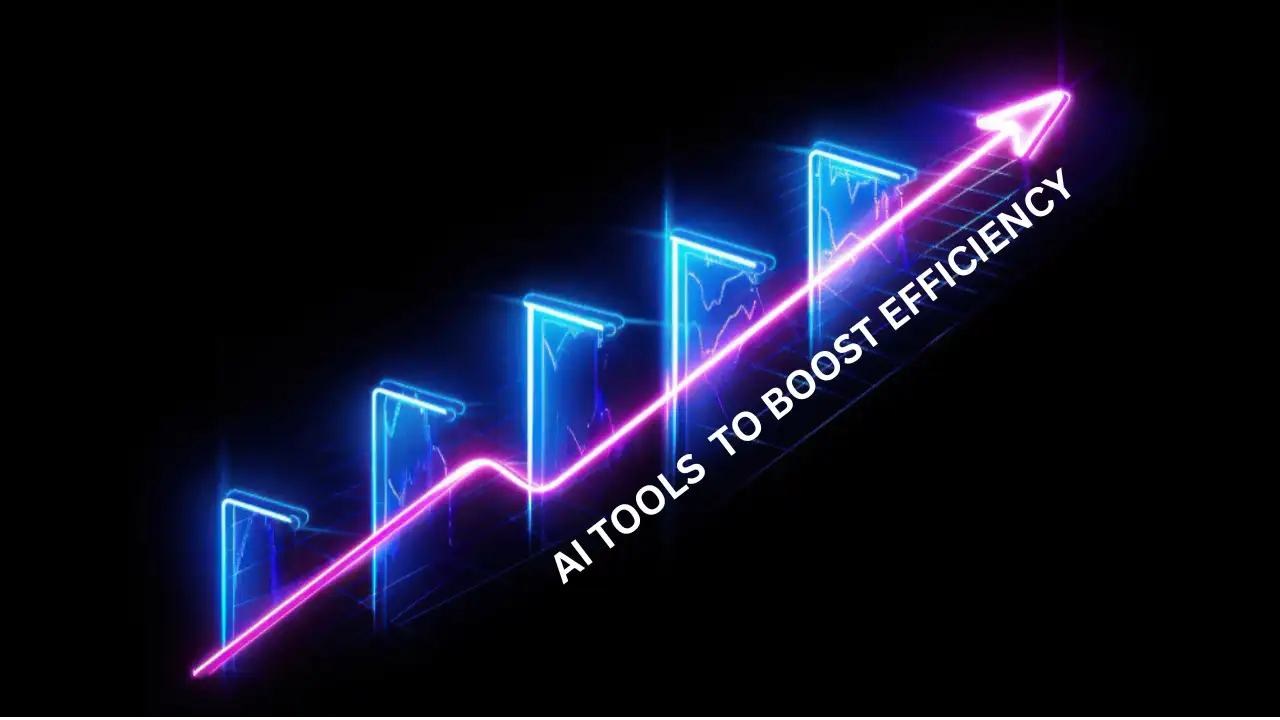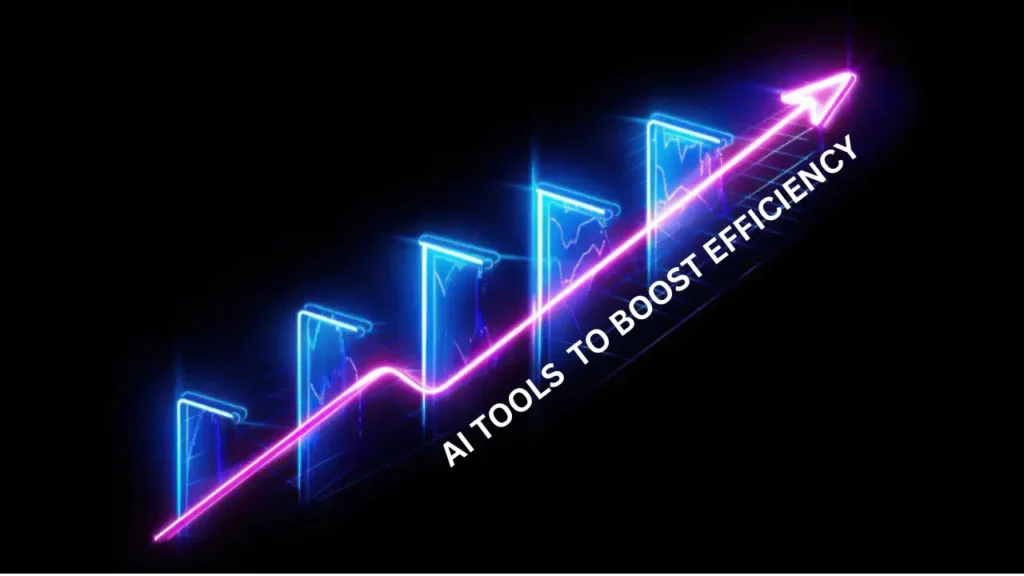Introduction to AI Tools for Stock Analysis, Trading, and Prediction
As an experienced writer, I’ve witnessed the remarkable advancements in the field of Artificial Intelligence (AI) and its profound impact on the stock market. In today’s fast-paced and volatile financial landscape, investors and traders are constantly seeking innovative tools to gain a competitive edge. That’s where AI-powered solutions come into play, revolutionizing the way we approach stock analysis, trading, and prediction.
In this comprehensive article, I’ll explore the 15 best AI tools that are transforming the stock market, helping investors and traders make more informed decisions and achieve greater success. From in-depth analysis to real-time trading strategies and predictive modeling, these AI-driven tools are redefining the game.
Benefits of Using AI Tools for Stock Analysis, Trading, and Prediction
The integration of AI into the stock market has brought about a myriad of benefits for investors and traders. By leveraging advanced algorithms, machine learning, and data-driven insights, these AI tools offer:
- Enhanced Accuracy: AI-powered tools can process and analyze vast amounts of data, identifying patterns and trends that might be overlooked by traditional methods. This improved accuracy can lead to more informed investment decisions.
- Faster Decision-Making: AI algorithms can process information and generate insights in real time, allowing investors and traders to make quicker, more responsive decisions in the rapidly changing market.
- Reduced Bias: AI tools are designed to make objective, data-driven decisions, minimizing the impact of human biases that can often influence investment strategies.
- Personalized Recommendations: Many AI tools offer customized recommendations based on an individual’s risk profile, investment goals, and market conditions, providing a tailored approach to stock analysis and trading.
- Improved Risk Management: AI-powered tools can help identify and mitigate potential risks, enabling investors and traders to make more informed decisions and manage their portfolios more effectively.
You May Also Like: 10 Best AI Tools for Code Completion and Generation
How AI Tools are Revolutionizing the Stock Market
The integration of AI into the stock market has been a game-changer, transforming the way investors and traders approach their strategies. Here are some of the ways AI is revolutionizing the stock market:
- Automated Trading: AI-driven trading algorithms can execute trades in real-time, responding to market fluctuations with speed and precision that surpasses human capabilities.
- Predictive Analytics: AI models can analyze vast amounts of historical data, news, and market trends to generate accurate predictions about stock price movements, helping investors make more informed decisions.
- Portfolio Optimization: AI tools can optimize investment portfolios by identifying the most promising stocks, diversifying assets, and adjusting risk levels based on an individual’s investment goals.
- Anomaly Detection: AI algorithms can quickly identify unusual market patterns or events, alerting investors and traders to potential risks or opportunities that might have gone unnoticed.
- Natural Language Processing (NLP): AI-powered NLP tools can analyze financial news, reports, and social media sentiment to uncover insights that can inform investment strategies.
Key Features to Look for in AI Tools for Stock Analysis, Trading, and Prediction
When selecting the right AI tools for your stock market needs, it’s important to consider the following key features:
- Data Integration: The ability to seamlessly integrate and analyze a wide range of data sources, including financial reports, market data, news, and social media.
- Predictive Modeling: Advanced algorithms that can accurately forecast stock price movements, market trends, and other key indicators.
- Automated Trading: Capabilities that allow for the execution of trades based on pre-defined rules and market conditions.
- Portfolio Optimization: Features that can help diversify and balance investment portfolios to manage risk and maximize returns.
- User-Friendly Interface: An intuitive and easy-to-navigate platform that provides clear, actionable insights and recommendations.
- Customization: The flexibility to customize the tool’s settings, algorithms, and outputs to fit your specific investment strategies and goals.
- Backtesting and Simulation: The ability to test and refine your trading strategies using historical data before implementing them in the live market.
You May Also Like: The Top 10 AI Video Editing Tools for Free
The Top 5 AI Tools for Stock Analysis
StockBeam
StockBeam is an AI-powered stock analysis platform that combines machine learning algorithms with a vast database of financial data. It offers in-depth fundamental and technical analysis, as well as personalized stock recommendations based on an individual’s risk profile and investment goals.
Pros
- Comprehensive Analysis: StockBeam provides in-depth analysis of stocks, helping investors make informed decisions based on detailed data and insights.
- User-Friendly Interface: The platform is designed with an intuitive interface, making it accessible for both novice and experienced investors.
- Real-Time Data: Offers real-time stock market data, ensuring users have the most current information for trading and investment decisions.
- Customizable Alerts: Users can set up customizable alerts for stock price changes, news updates, and other relevant market events.
- Diverse Tools: Includes a variety of tools for technical analysis, portfolio management, and risk assessment, catering to different investment strategies.
Cons:
- Subscription Costs: Some features may require a subscription, which can be costly for individual investors or those with limited budgets.
- Complexity for Beginners: While the interface is user-friendly, the depth of features and data might be overwhelming for beginners without prior stock market knowledge.
- Limited Free Features: The free version may have limited features compared to the paid version, potentially restricting access to advanced tools and data.
- Dependence on Internet Connectivity: Requires a stable internet connection for real-time data and updates, which can be a limitation in areas with poor connectivity.
- Market Volatility Impact: Like any stock tool, predictions and analyses can be affected by sudden market volatility, which might lead to unexpected investment outcomes.
Intrinio
Intrinio is a comprehensive financial data and analysis platform that leverages AI to provide investors with real-time insights, market trends, and stock valuation models. Its user-friendly interface and customizable dashboards make it a popular choice among both novice and experienced investors.
Pros:
- Extensive Data Coverage: Intrinio offers a wide range of financial data, including historical stock prices, financial statements, and economic indicators, making it a comprehensive resource for investors and analysts.
- API Access: Provides robust API access, allowing developers to integrate financial data into their applications and platforms seamlessly.
- Customizable Solutions: Offers customizable data solutions tailored to meet the specific needs of businesses and individual users.
- Real-Time Data: Delivers real-time data feeds, ensuring users have up-to-date information for making timely investment decisions.
- Educational Resources: Provides educational resources and support to help users understand and utilize financial data effectively.
Cons
- Pricing Structure: The pricing can be complex and may become expensive for users requiring extensive data access or multiple data feeds.
- Learning Curve: The platform may have a steep learning curve for those not familiar with financial data analysis or API integration.
- Limited Free Access: Free access is limited, which might restrict users from exploring the full capabilities of the platform without a subscription.
- Technical Requirements: Users need some technical knowledge, especially when using the API, which might not be suitable for non-technical users.
- Data Overload: The vast amount of data available can be overwhelming for users who do not have a clear strategy or understanding of how to utilize it effectively.
FinBrain
FinBrain is an AI-driven stock analysis and prediction tool that uses natural language processing to analyze financial news, social media sentiment, and market data. It provides investors with detailed forecasts, risk assessments, and portfolio optimization recommendations.
Pros
- AI-Powered Predictions: FinBrain utilizes advanced AI algorithms to provide stock market predictions, offering a cutting-edge approach to investment analysis.
- Comprehensive Market Coverage: The platform covers a wide range of markets, including stocks, cryptocurrencies, and forex, making it versatile for different types of investors.
- User-Friendly Interface:Designed with an intuitive interface, FinBrain is accessible to both beginners and experienced traders, facilitating ease of use.
- Data-Driven Insights: Provides data-driven insights and analytics, helping users make informed decisions based on quantitative analysis.
- Regular Updates:Offers regular updates and forecasts, ensuring users have the latest information to guide their investment strategies.
Cons
- Subscription Costs: Access to advanced features and detailed predictions may require a subscription, which could be costly for some users.
- Market Volatility: Like any predictive tool, FinBrain’s forecasts can be affected by sudden market changes, which may impact accuracy.
- Limited Free Features: The free version might have limited access to features and data, potentially restricting its utility for users not willing to pay.
- Dependence on AI: Heavy reliance on AI predictions might not account for all market nuances, which could be a drawback for traders who prefer a more hands-on approach.
- Learning Curve: Users unfamiliar with AI-based tools may experience a learning curve when interpreting and utilizing the predictions effectively.
Alpaca
Alpaca is a cutting-edge AI-powered trading platform that offers automated trading capabilities, portfolio optimization, and real-time market analysis. Its advanced algorithms can execute trades based on predefined strategies, allowing investors to take advantage of market opportunities quickly and efficiently.
Pros
- Commission-Free Trading: Alpaca offers commission-free trading, making it an attractive option for cost-conscious investors looking to maximize their returns.
- API Access: Provides robust API access, allowing developers to build custom trading applications and automate trading strategies.
- Fractional Shares: Supports fractional share trading, enabling investors to buy portions of expensive stocks, thus diversifying their portfolios with smaller investments.
- User-Friendly Platform: The platform is designed to be intuitive and easy to use, making it accessible for both beginners and experienced traders.
- Integration Capabilities: Offers integration with various financial tools and platforms, enhancing its utility for users who want to streamline their trading activities.
Cons
- Limited Asset Classes: Primarily focused on stocks and ETFs, which may not be suitable for investors looking to trade a wider range of asset classes like options or futures.
- US-Only Market Access: Currently, Alpaca primarily provides access to US markets, which might limit international investors or those interested in global trading.
- No Direct Customer Support: Lacks direct customer support, relying on email and community forums, which might be a drawback for users needing immediate assistance.
- Learning Curve for API: While the API is powerful, it may require technical knowledge, posing a learning curve for users unfamiliar with programming or API usage.
- Limited Research Tools: Offers fewer research and analysis tools compared to some other trading platforms, which might be a limitation for users seeking comprehensive market insights.
Quant Connect
Quant Connect is a cloud-based platform that empowers investors to develop, backtest, and deploy their own AI-driven trading strategies. Its user-friendly interface and extensive library of pre-built models make it a popular choice for both professional and amateur traders.
Pros
- Algorithmic Trading Platform: QuantConnect is a powerful platform for algorithmic trading, providing tools to develop, test, and deploy trading algorithms across multiple asset classes.
- Extensive Data Library: Offers access to a vast library of historical and real-time data, enabling users to backtest strategies with a wide range of data sets.
- Open-Source Community: Supports an active open-source community, allowing users to share and collaborate on trading algorithms and strategies.
- Multi-Asset Support: Supports trading across various asset classes, including equities, forex, futures, and cryptocurrencies, providing flexibility for diverse trading strategies.
- Cloud-Based Platform: Being cloud-based, QuantConnect allows users to access their work and run algorithms from anywhere, without the need for local infrastructure.
Cons
- Complexity for Beginners: The platform can be complex for beginners, especially those without programming skills or experience in algorithmic trading.
- Subscription Costs: Advanced features and data access may require a subscription, which could be a barrier for individual traders with limited budgets.
- Learning Curve: There is a steep learning curve associated with understanding and utilizing the platform’s full capabilities, particularly for those new to coding or quantitative analysis.
- Limited Customer Support: Customer support is primarily community-driven, which might not be sufficient for users needing immediate or personalized assistance.
- Dependence on Internet Connectivity: As a cloud-based platform, it requires a stable internet connection, which can be a limitation in areas with unreliable connectivity.
The Top 5 AI Tools for Stock Trading
Sentifi
Sentifi is an AI-powered trading platform that analyzes social media, news, and market data to generate real-time trading signals and alerts. Its predictive models and sentiment analysis capabilities help investors stay ahead of market trends and make more informed trading decisions.
Kavout
Kavout is an AI-driven trading platform that combines advanced algorithms, machine learning, and big data analytics to provide investors with personalized trading recommendations, portfolio optimization, and risk management tools.
Neurensic
Neurensic is an AI-powered trading platform that uses deep learning algorithms to identify patterns, anomalies, and potential risks in the market. Its predictive models and automated trading capabilities can help investors capitalize on market opportunities while minimizing potential losses.
Trendspider
Trendspider is an AI-powered trading platform that offers advanced technical analysis, trend identification, and automated trading features. Its user-friendly interface and customizable dashboards make it a popular choice among active traders.
Tradytics
Tradytics is an AI-driven trading platform that leverages machine learning and natural language processing to analyze market data, news, and social media sentiment. Its predictive models and real-time trading signals can help investors make more informed trading decisions and execute trades more effectively.
The Top 5 AI Tools for Stock Prediction
Accern
Accern is an AI-powered platform that specializes in predictive analytics for the stock market. Its machine learning algorithms analyze a wide range of data sources, including financial reports, news, and social media, to generate accurate forecasts and investment recommendations.
Dataminr
Dataminr is an AI-driven platform that uses real-time data analysis to identify and predict market-moving events. Its predictive models can help investors stay ahead of the curve and make more informed trading decisions.
Kensho
Kensho is an AI-powered platform that combines natural language processing, machine learning, and predictive analytics to provide investors with insights and forecasts on a wide range of financial instruments, including stocks, bonds, and commodities.
Predata
Predata is an AI-driven platform that uses alternative data sources, such as social media and web traffic, to generate predictive insights on market trends and stock price movements. Its advanced algorithms can help investors identify emerging opportunities and mitigate potential risks.
Prattle
Prattle is an AI-powered platform that specializes in analyzing financial language and sentiment to generate predictive insights on stock price movements. Its natural language processing capabilities can help investors stay informed on the latest market developments and make more informed trading decisions.
How to Choose the Right AI Tool for Your Stock Market Needs
Selecting the right AI tool for your stock market needs can be a daunting task, given the wide range of options available. To make an informed decision, consider the following factors:
- Investment Goals: Clearly define your investment goals, whether it’s long-term growth, short-term trading, or a combination of both. This will help you identify the AI tools that best align with your objectives.
- Risk Tolerance: Assess your risk tolerance and choose AI tools that can help you manage and mitigate potential risks, while still providing opportunities for growth.
- Data Integration: Ensure the AI tool can seamlessly integrate with the data sources you rely on, such as financial reports, market data, and news feeds.
- Customization: Look for AI tools that offer a high degree of customization, allowing you to tailor the algorithms, dashboards, and outputs to your specific investment strategies and preferences.
- User Experience: Consider the overall user experience, including the tool’s interface, ease of use, and the quality of the insights and recommendations it provides.
- Transparency: Prioritize AI tools that offer transparent and explainable algorithms, so you can understand the reasoning behind the insights and predictions they generate.
- Scalability: Choose an AI tool that can grow with your investment portfolio and accommodate your future needs as your investment strategies evolve.
Case Studies: Successful Stock Market Predictions Using AI Tools
The power of AI-driven stock market prediction tools has been demonstrated in numerous case studies. Here are a few examples:
- Accern’s Predictive Insights: Accern’s AI-powered platform was able to accurately predict the stock price movements of several major tech companies, including Apple and Amazon, by analyzing a wide range of data sources, including financial reports, news, and social media sentiment.
- Kensho’s Market Event Forecasting: Kensho’s AI-driven platform successfully predicted the market’s reaction to several high-profile events, such as the 2016 U.S. presidential election and the Brexit referendum, by leveraging its natural language processing and machine learning capabilities.
- Predata’s Alternative Data Insights: Predata’s AI-powered platform used alternative data sources, such as web traffic and social media activity, to generate accurate predictions on the stock price movements of various companies, helping investors capitalize on emerging market trends.
- Sentifi’s Real-Time Trading Signals: Sentifi’s AI-driven trading platform was able to generate timely and accurate trading signals by analyzing social media sentiment and news data, enabling investors to make more informed decisions and execute trades more effectively.
- Tradytics’ Automated Trading Strategies: Tradytics’ AI-powered trading platform successfully implemented automated trading strategies based on its predictive models, generating consistent returns for investors and demonstrating the potential of AI-driven trading solutions.
AI Tools vs. Traditional Stock Market Analysis Methods
While traditional stock market analysis methods, such as fundamental and technical analysis, have long been the mainstay of investment strategies, the integration of AI-powered tools has brought about a significant shift in the way investors and traders approach the market.
Compared to traditional methods, AI-driven tools offer several key advantages:
- Data Processing Capabilities: AI tools can process and analyze vast amounts of data, including financial reports, news, and social media, to uncover insights that may be overlooked by manual analysis.
- Speed and Responsiveness: AI algorithms can react to market changes and generate trading signals in real time, allowing investors to capitalize on opportunities more quickly than with traditional methods.
- Objectivity and Reduced Bias: AI tools make decisions based on data-driven insights, minimizing the impact of human biases that can often influence traditional investment strategies.
- Personalization and Customization: AI-powered tools can provide customized recommendations and strategies based on an individual’s investment goals, risk profile, and market conditions.
- Backtesting and Simulation: Many AI tools offer the ability to backtest and simulate trading strategies using historical data, enabling investors to refine their approaches before implementing them in the live market.
While traditional analysis methods still have a vital role to play in the stock market, the integration of AI-driven tools has undoubtedly transformed the investment landscape, offering investors and traders a more comprehensive and data-driven approach to decision-making.
The Future of AI in Stock Analysis, Trading, and Prediction
As the financial industry continues to embrace the power of AI, the future of stock analysis, trading, and prediction looks increasingly promising. Here are some of the key trends and developments we can expect to see in the years to come:
- Advancements in Machine Learning: Continued advancements in machine learning algorithms, including deep learning and reinforcement learning, will enable AI tools to make even more accurate predictions and generate more sophisticated trading strategies.
- Increased Integration of Alternative Data: The use of alternative data sources, such as satellite imagery, web traffic, and social media sentiment, will become more prevalent in AI-driven stock market analysis and prediction models.
- Automated Decision-Making: AI-powered trading platforms will become more sophisticated, with the ability to execute trades autonomously based on predefined algorithms and market conditions.
- Personalized Investment Advice: AI tools will offer increasingly personalized investment recommendations and portfolio management solutions, tailored to the unique needs and risk profiles of individual investors.
- Improved Transparency and Explainability: AI models will become more transparent and explainable, allowing investors to better understand the reasoning behind the insights and predictions they generate.
- Collaborative Ecosystems: The stock market will see the emergence of collaborative ecosystems, where AI-powered tools, human experts, and investors work together to develop and refine investment strategies.
As the adoption of AI in the stock market continues to grow, investors and traders who embrace these innovative tools will be well-positioned to navigate the ever-changing financial landscape and achieve greater success in their investment ventures.
Conclusion: Harnessing the Power of AI for Successful Stock Market Ventures
In an era of rapid technological advancement, the integration of AI into the stock market has been a game-changer, revolutionizing the way investors and traders approach their strategies. By leveraging the power of AI-driven tools, we can unlock a wealth of opportunities and insights that were previously inaccessible.
Throughout this article, we’ve explored the 15 best AI tools for stock analysis, trading, and prediction, each offering unique capabilities and features to help investors make more informed decisions and achieve greater success in the stock market. From automated trading algorithms to predictive analytics and portfolio optimization, these AI-powered solutions are redefining the investment landscape.
As we look towards the future, the continued advancements in AI technology will undoubtedly reshape the stock market even further, offering investors and traders unprecedented opportunities to capitalize on market trends, mitigate risks, and generate consistent returns.To learn more about how AI can transform your stock market ventures, I encourage you to explore the AI tools highlighted in this article and consider how they might fit into your investment strategy. Remember, the key to success in the stock market lies in embracing innovation and harnessing the power of cutting-edge technologies like AI. Start your journey towards more informed and profitable stock market investments today!













1 thought on “15 Best AI Tools for Stock Analysis, Trading and Prediction”
Pingback: 10 Best AI Certifications to Elevate Your Skills